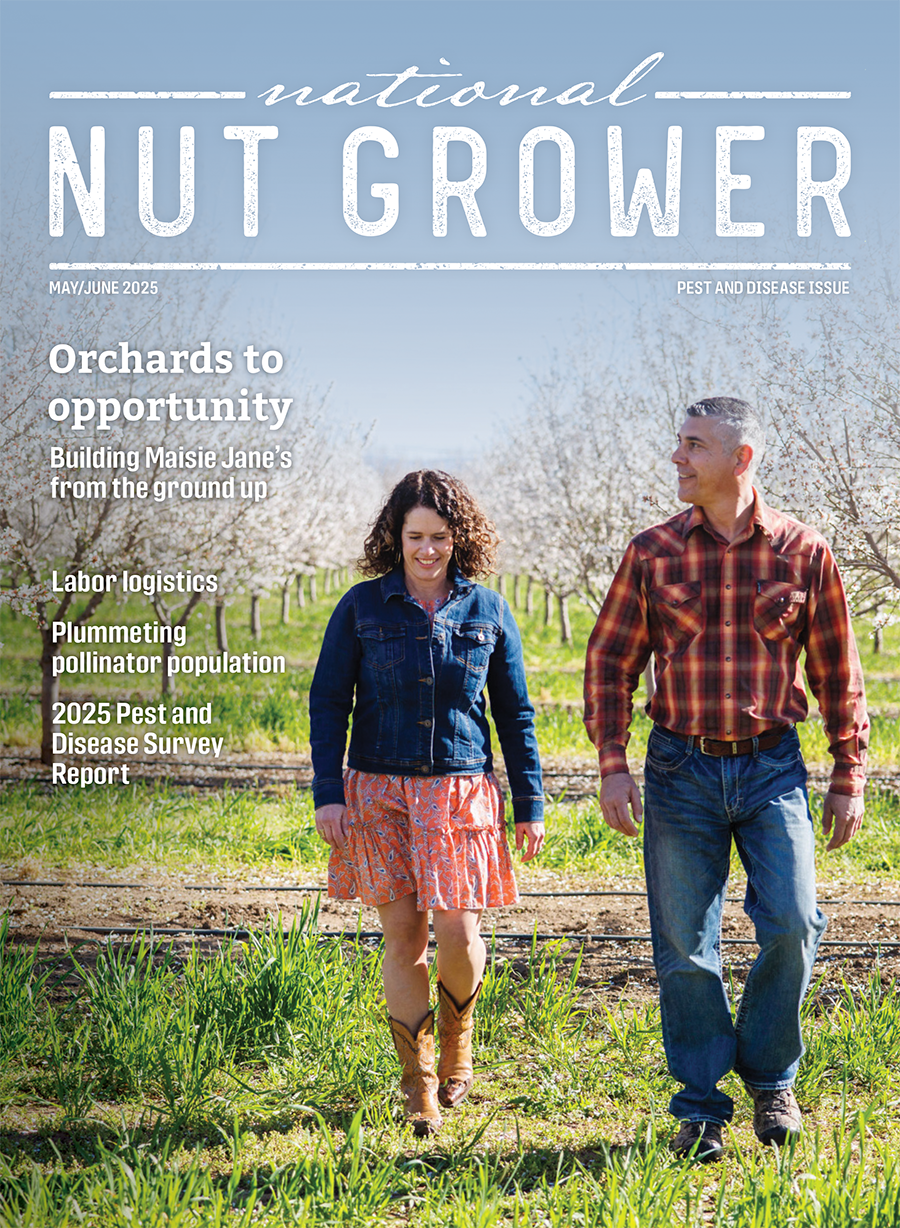pollinators
Drawing on a similar customer base, BioSafe and BVT will partner their biologicals and bee vectoring technologies, respectively.
more »
Recommendations for fluopyram-based fungicides change after lowered maximum residue levels imposed by the European Union.
more »
How bees are managed matters for pollination.
more »
Edete Precision Technologies for Agriculture is preparing to offer artificial pollination services to pistachio growers in California in April 2022 after successful trials boosted yields 24%.
more »
The organization has only given out its Business for Bees Sustainability Award once before, and this time presented it to the Almond Board of California.
more »
Major snack food company makes a significant pledge.
more »
Bee-focused partnerships move growers toward more sustainable almond production.
more »
With growth capital secured, the company is focusing on becoming a leading pollination services provider by expanding into new crops and territories and using IoT tech for the best data.
more »
Seventy-five percent of the nation's bees travel to California for almond bloom, so knowing the nutritional value of various pollens is important to the crops that depend on them.
more »
As one of four speaker and the only representative from agriculture, Almond Board's Josette Lewis detailed why the California Pollination Coalition's collaborative conservation is a strong example of environmental alliances.
more »
Be sure to check out our other specialty agriculture brands






